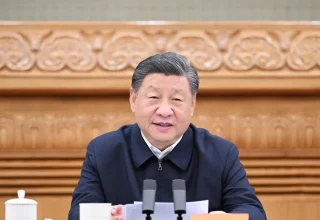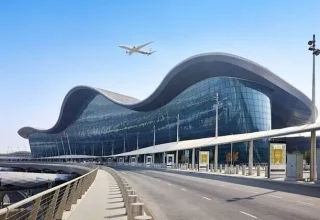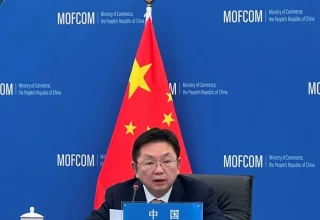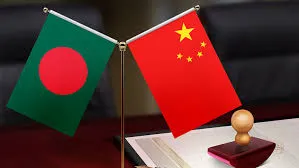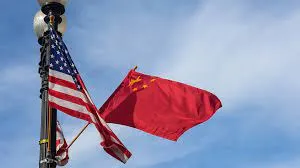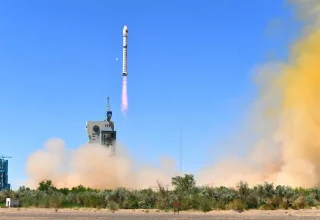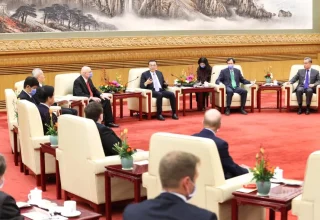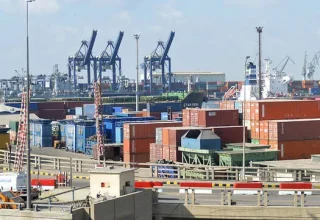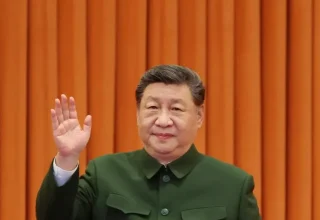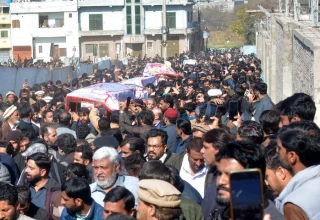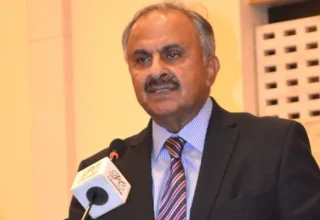
The Pakistan Ex-Servicemen Society’s (PESS) President, Senator Lt. General Abdul Qayyum HI (M) (Retd.), addressed a press conference in Rawalpindi on Thursday to present the Society’s perspective on Pakistan’s counterterrorism strategy, the national economy, the Pakistan–Saudi Strategic Mutual Defense Agreement (SMDA), and United States President Donald Trump’s 20-Point Peace Plan for the Middle East.
General Qayyum praised the sacrifices of Pakistan’s armed forces and laid out the Society’s assessment of key national and international developments.
General Qayyum paid tribute to Pakistan’s armed forces, second-line forces, and police for their courage and sacrifices in countering terrorist threats, including those posed by the Tehreek-e-Taliban Pakistan (TTP) and extremist elements allegedly supported by external actors. He highlighted the proactive strategy of security forces in dismantling terrorist nests and sleeper cells.
He further observed that the government’s four-pronged counterterrorism strategy military operations, legislative measures, politico-diplomatic initiatives, and addressing root causes through socio-economic justice must be pursued with full commitment.
The PESS President welcomed recent improvements in Pakistan’s macroeconomic indicators, citing higher foreign exchange reserves, reduced inflation, rising remittances, export growth, tax reforms, and favorable tariff negotiations with the United States. He noted that even the Asian Development Bank had endorsed these positive trends.
However, General Qayyum cautioned that the government must address the growing gap between rich and poor and reduce heavy reliance on borrowing, pointing out that almost one-quarter of the federal budget is dependent on debt. He also urged that the minimum pension for ex-servicemen should not fall below the national minimum wage.
General Qayyum described the recently signed SMDA as a “win-win agreement” concluded at the right time. He credited Pakistan’s politico-military leadership, particularly Field Marshal Syed Asim Munir NI (M), for enhancing Pakistan’s international standing through successful operations such as Bunyun-um-Marsoos and Marga-e-Haq.
He noted that Pakistan’s $9 billion defense budget, professional and battle-hardened army, and strong defense production base, combined with Saudi Arabia’s $78 billion annual defense expenditure but limited defense production capabilities, create a mutually beneficial partnership. According to him, the agreement also holds potential to evolve into a multilateral security framework.
Commenting on international affairs, General Qayyum discussed US President Donald Trump’s 20-Point Peace Plan for the Middle East. He welcomed aspects such as a ceasefire tied to hostage release, an end to atrocities and destruction, Israeli withdrawal of forces, the formation of an interim Palestinian-Technocratic government, and the beginning of reconstruction.
At the same time, he highlighted concerns raised by critics, including the lack of a firm commitment to a two-state solution, absence of a timeline for Israeli troop withdrawal, doubts about Israel’s sincerity, and the controversial role of Tony Blair on the Peace Board.
Despite these reservations, General Qayyum expressed cautious optimism, noting that the Palestinian Authority had approved the plan, Arab neighbors historically had not intervened to halt Israeli actions, Israel showed signs of retreat on Gaza and the West Bank, and that the plan could provide a path toward a two-state solution already endorsed by 161 UN member states.
He stressed that democratization of the United Nations was necessary, calling for legal endorsement of the peace plan by the UN General Assembly. He also pointed out that the United States has cast 51 vetoes in favor of Israel, obstructing progress toward a just settlement.
Concluding his remarks, General Abdul Qayyum reiterated the Ex-Servicemen Society’s firm commitment to Pakistan’s security, stability, and global reputation, while urging social justice, economic equity, and a principled position on international peace and justice.






